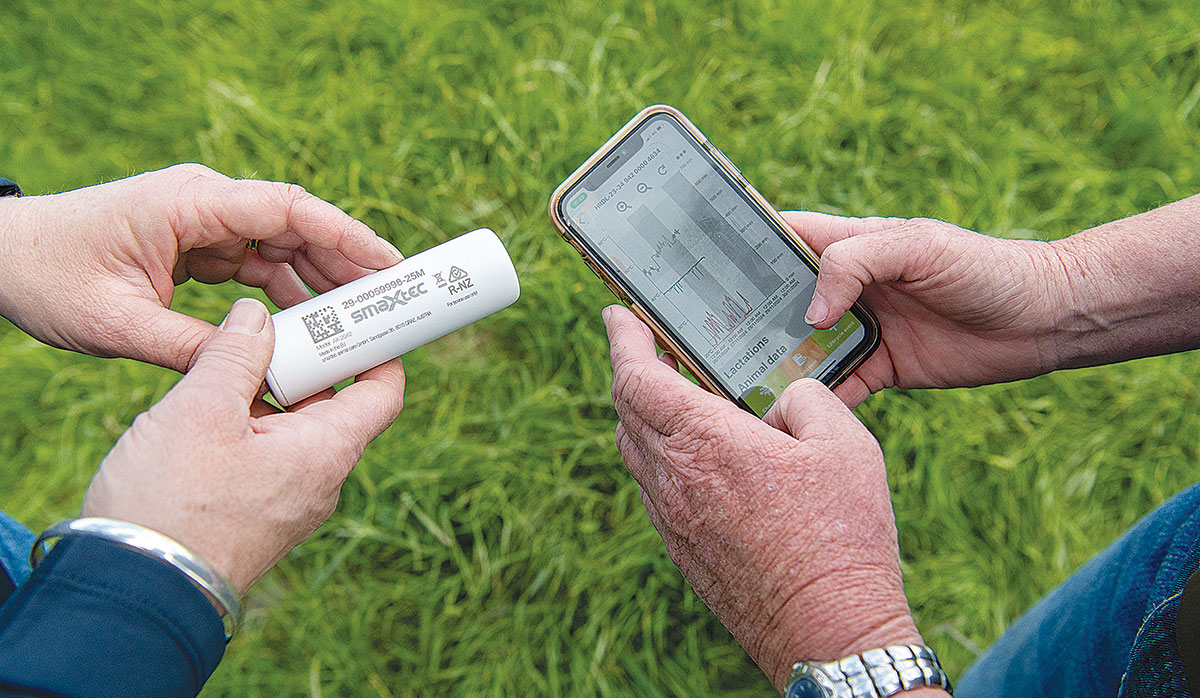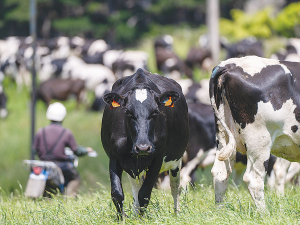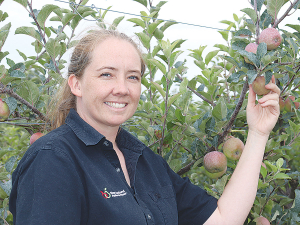smaXtec's bolus technology supports early detection of potential diseases, enabling preventive measures to improve herd health and reproductive outcomes.
smaXtec says the bolus provides precise insights directly from within the cow, operating reliably inside the reticulum - unlike external sensors, which can be easily affected by environmental factors, especially in grazing systems. It measures inner body temperature with unrivalled accuracy (±0.01°C), tracks water intake, drinking cycles, rumination based on reticulum contractions, and overall activity. This precise data enables the earliest possible detection of potential diseases, long before visible symptoms appear, by instantly alerting farmers via smartphone or computer for timely intervention.
Focus on prevention
David Thompson, who runs a 305-cow farm in Feilding, Manawatū-Whanganui, says he received three temperature alerts over three days.
"The vet confirmed pneumonia, even though the cow appeared fine. Without smaXtec, I wouldn't have noticed it until 3-4 days later."
Sarah Neilson from South Taranaki, managing a herd of 340 cows, adds that it's been about prevention rather than cure.
"When we had a case of twisted bowel, we caught it early. It had just started when we were able to get the vet to remedy it.
"He had the thermometer in the cow and said, 'I will never have to deal with that ever again - this is such reliable data.' Now, the vet checks the smaXtec data first because the temperature alerts are always accurate."
 |
|---|
|
Precise data enables the earliest possible detection of potential diseases by alerting farmers via smartphone or computer.
|
Supporting productivity and profitability
The company says early detection with smaXtec allows for milder treatments and reduces the need for antibiotics, which can help lower treatment costs and support stable milk yields. The system also provides insights that enhance heat detection, support reproduction and conception rates, and optimise the calving and mating process.
Hayden Lawrence, who runs a 430-cow farm in Taranaki, observes: "Using smaXtec has improved detection, reduced mastitis cases by 64%, and cut costs by 56%.
"It has become an essential part of our routine, saving us time by reviewing health data before each milking."
For more information, visit their website www.smaxtec.com/new-zealand/ or contact via This email address is being protected from spambots. You need JavaScript enabled to view it..


















